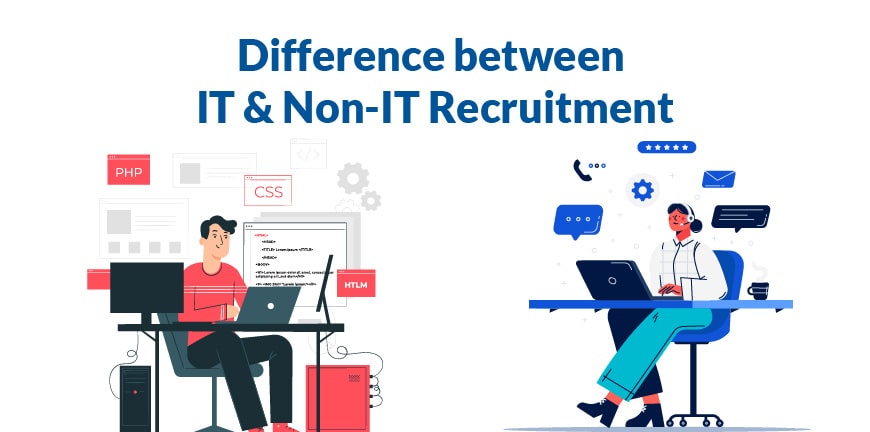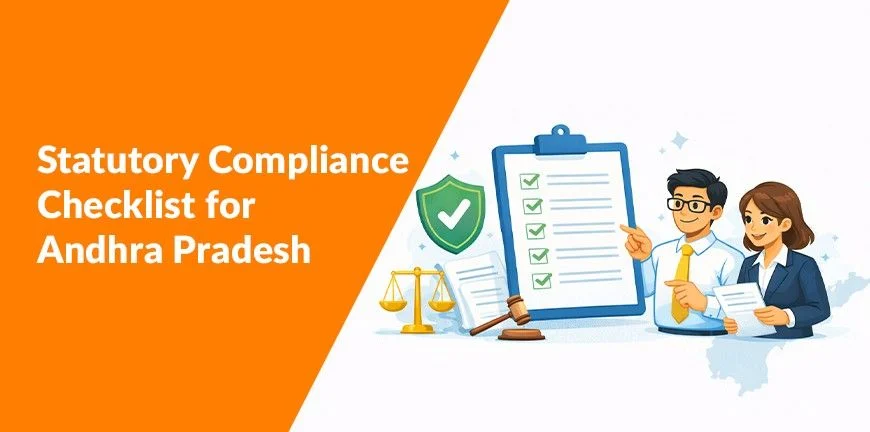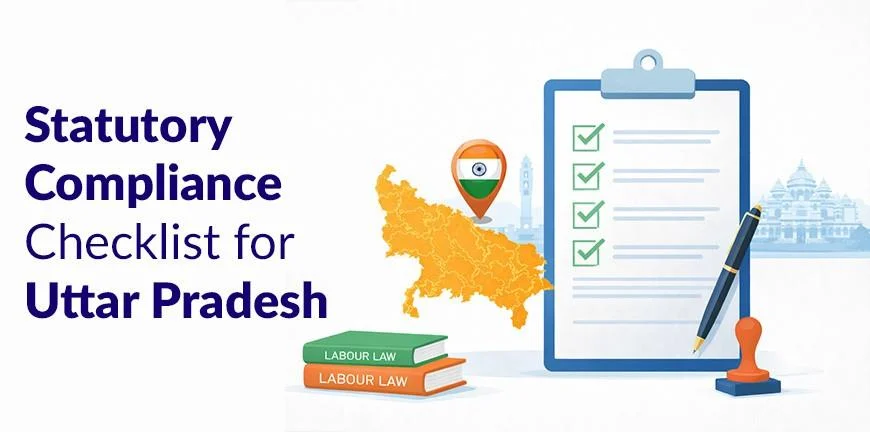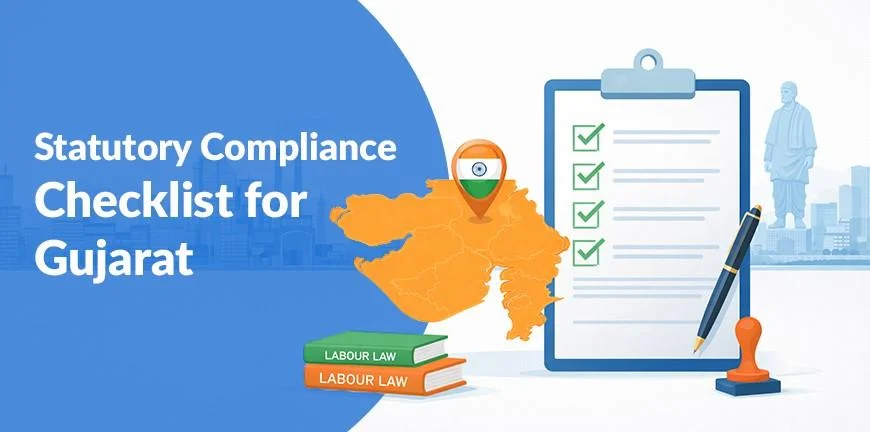
Difference Between IT and non-IT Recruitment
09/01/2026
What Is Executive Search? Definition, Types, Benefits, Challenges
09/01/2026- What is Non-Compliance? Meaning & Definition
- What is Non-Compliance in HR and Payroll?
- What is the Difference Between Compliance and Non-Compliance?
- What are the Common Causes of Non-Compliance in Indian Businesses?
- What are the Examples of Non-Compliance in the Workplace?
- What Are the Consequences of Non-Compliance in 2026?
- What Are the Penalties for Non-Compliance in India?
- What Are the New Compliance Challenges in 2026?
- How Does Non-Compliance Affect Business Growth and Strategy?
- How New Labour Codes Increase Non-Compliance Risks for Employers?
- What Happens During a Government Compliance Inspection or Audit?
- Why SMEs and Startups Are Most Vulnerable to Non-Compliance?
- How Can Companies Prevent or Address Non-Compliance in 2026?
- What is the Role of Technology in Preventing Non-Compliance?
- How can Alp Consulting help with Compliance Management?
- Key Takeaways
- Frequently Asked Questions (FAQs)
“The cost of compliance is far less than the cost of losing trust.”- Tim Cook, CEO, Apple
What is Non-Compliance? And How Much Is It Costing Your Business in 2026? Ever wondered why businesses must get clarity on such basic yet critical questions? One wrong move and it’s game over!
In 2026, non-compliance has become one of the most pressing challenges for companies across India. As global regulations evolve & enforcement grows stricter, even minor violations can lead to severe financial penalties, reputational harm, & operational disruptions. The average cost of a data breach in India has reached a record Rs. 22 crore (INR 220 million) in 2025/2026, a 13% rise from the previous financial year.
Beyond legal consequences, non-compliance also affects employee morale, investor confidence, and long-term business growth. With new labour codes being launched in November 2025, the stakes are getting even higher. Companies must overhaul their existing processes and systems to remove gaps and prevent costly escalations.
Let’s cover all bases and get the best answers and insights for questions like what is non-compliance? its meaning, types of non-compliance, consequences of non-compliance & many more. The main agenda for this detailed discussion on non-compliance is to help employers become more proactive and prevent violations before they escalate into irreversible consequences. Go!
What is Non-Compliance? Meaning & Definition
In a 2026 context, experts define non-compliance meaning through “The Regulatory Gap”: It states, “Non-compliance is the measurable distance b/w the speed of technological innovation (like AI) & the speed of an organization’s internal control mechanisms”.
Non-compliance definition in business refers to the failure of an organization or its employees to adhere to laws, industry regulations, or internal workplace policies set by the management, as well as the state & central governments. Different types of non-compliance include issues like safety violations, unethical behaviour, or ignoring labour standards.
According to PwC, over 35% of companies experience internal compliance breaches annually, impacting productivity and brand credibility. A real-world example of non-compliance in the workplace is Boeing’s workplace safety non-compliance case in 2026, where lapses in employee safety protocols led to investigations & production halts.
Such incidents emphasize how major non-compliance can disrupt operations, erode trust, & significantly affect long-term business growth and employer branding.
What is Non-Compliance in HR and Payroll?
Non-compliance meaning varies based on the specific department it is applied in an organisational setup. When we are trying to answer what is non-compliance in HR and payroll, it offers different insights when we are discussing, say suppose non-compliance in shopfloor operations.
Non-compliance in HR and payroll refers to an organisation’s inability or negligence to follow labour laws, tax regulations, statutory deductions, & internal employment policies while managing employees and salary processes.
The errors in EPF, ESIC, PT, TDS, wage structures, overtime payments, leave records, contractor compliance, and statutory filings can lead to major non-compliance. In 2026, with new labour codes & stricter digital audits hovering over companies on a large scale, even minor payroll miscalculations or missing HR documentation can trigger hefty penalties, inspections, & employee disputes. These repercussions directly impact business credibility & operational continuity.
Example: In 2024–25, Indian businesses reportedly paid approximately Rs. 627 crores in fines and late fees for statutory filing delays alone. However, looking forward into 2026, the risk has escalated: under the new Social Security Code, failure to deposit or incorrect reporting of PF/ESI contributions now attracts penalties ranging from 50% to 100% of the amount due, alongside potential imprisonment of up to 3 years for repeat offences.
What is the Difference Between Compliance and Non-Compliance?
Here are the key differences between compliance and non-compliance.
| Aspect | Compliance | Non-Compliance |
| 1. Definition | Adhering to laws, regulations, and internal company policies. | Failing to follow applicable rules, standards, or procedures. |
| 2. Business Reputation | Builds trust, credibility, and positive public perception. | Damages reputation, reducing customer and stakeholder confidence. |
| 3. Financial Impact | Avoids fines, legal costs, and operational disruptions. | Leads to penalties, lawsuits, and significant financial losses. |
| 4. Employee Morale | Encourages ethical behaviour and a safe work culture. | Creates fear, dissatisfaction, and potential workplace conflicts. |
| 5. Legal Standing | Ensures full legal protection and operational legitimacy. | Exposes business to lawsuits, sanctions, and regulatory actions. |
| 6. Operational Efficiency | Promotes smooth processes with clear compliance systems. | Causes workflow delays, audits, or business interruptions. |
| 7. Strategic Growth | Enables sustainable expansion and investor confidence. | Restricts market opportunities and long-term strategic planning. |
| 8. Stakeholder Relations | Strengthens investor, customer, and partner relationships. | Weakens trust, leading to reduced business collaborations. |
What Are the Main Types of Non-Compliance?
There are four different types of non-compliance. They are:
1. Statutory Non-Compliance
There are strict laws regarding the wages that must be paid, the working conditions of employees, and the benefits that they must be awarded, set by the central and state governments. Not following these rules leads to statutory non-compliance. According to India’s Labour Bureau, over 40% of small & medium enterprises (SMEs) fail to fully comply with statutory labour laws annually, often leading to hefty non-compliance fines or license suspensions.
2. Regulatory Non-Compliance
Regulatory bodies also set certain rules and regulations that organizations are supposed to follow. These regulatory bodies often conduct checks to ensure that the organization meets the requirements necessary to earn a clean certificate. A KPMG report found that nearly 32% of Indian firms received regulatory warnings or penalties due to non-compliance with sectoral regulations.
For instance, the Telecommunications Regulatory Authority of India (TRAI) provides general eligibility conditions for jobs in the telecom sector under its HRM policies document.
This includes such things as job specifications and minimum age requirements. This helps fight non-compliance in the telecom sector, improve the quality of operations, and level the playing field to a certain extent.
3. Corporate Non-Compliance
Sometimes the organisation itself has certain rules in place to ensure the proper functioning of the company. These rules and regulations are generally due to obligations the company might bear towards its customers, the members of the board, and its employees. As per a Deloitte survey, about 28% of workplace compliance violations in India arise from internal corporate policy breaches, impacting productivity & employee relations.
An instance of corporate non-compliance could be that of an employee taking more leave than is desired or allocated, often with a loss of pay. At the end of such a duration of employment, the employee may be terminated or asked to resign for non-compliance. Managing such employees so that the risk of non-compliance is reduced is a priority for most organizations.
4. Union Law Non-Compliance
Unions exist in India to protect the interests of workers and employees. Any violation of the stipulations set by a union for a particular industry and job role could lead to union law non-compliance. The International Labour Organization (ILO) reports that approximately 22% of reported workplace disputes in India are linked to union-related non-compliance, particularly in the manufacturing & aviation sectors.
An example of non-compliance in the workplace is an airline overworking its stewards, hostesses, or pilots when an aviation union’s guideline sets a maximum time that each staff member in the airline must work and the responsibilities they must be assigned.
What are the Common Causes of Non-Compliance in Indian Businesses?
Here are the 5 common causes of non-compliance observed in Indian business setups:
1. Frequent Labour Law Changes
Rapid amendments and changes in labour codes and state rules don’t allow HR teams to take a breather and make changes in policies in real-time. Such uncontrolled frequencies cause delayed implementation and accidental statutory violations, resulting in severe penalties for non-compliance.
2. Manual Payroll and Documentation Errors
Dependency on spreadsheets in 2026 for payroll management gives rise to calculation mistakes, missed filings, & incorrect statutory deductions across multi-location operations. This can lead to high non-compliance fines followed by surprise government audits.
3. Lack of Compliance Awareness and Training
Employees and managers unable to able to answer “what is non-compliance and what are the consequences of non-compliance is a major red flag. Without proper training and awareness about compliance, Employees and managers often remain oblivious of their regulatory duties and responsibilities. This leads to unsafe practices and the generation of an incomplete non-compliance report.
4. Poor Contractor and Vendor Compliance Tracking
Businesses often fail to monitor third-party compliance, becoming legally responsible for vendor labour law violations. Non-compliance management in such cases is very challenging, needing the assistance of expert compliance agencies like Alp Consulting Ltd.
5. Inadequate Use of Compliance Technology
Deployment of legacy systems or absence of automated compliance management systems will lead to delayed alerts, renewals, filings, & audit readiness, increasing regulatory exposure.
What are the Examples of Non-Compliance in the Workplace?
Here are 5 examples of non-compliance in the workplace that employers can learn from and ensure those don’t happen in their workplaces:
1. Delayed PF Deposits in Manufacturing Unit
During a labour inspection in Pune, a factory was fined after months of delayed PF deposits & incorrect wage registers. The penalties for non-compliance in this case include back payments, penalties, & temporary suspension of contractor operations.
2. POSH Non-Compliance in an IT Services Firm
An IT company in Bengaluru was bombarded with legal notices after failing to form an Internal Complaints Committee & turning a blind eye to sexual harassment complaints. This resulted in court intervention, public backlash, employee exits, & non-negotiable compliance training sessions across the board.
2. Safety Violations at Construction Site
A real estate project in Gurugram came to a standstill after workers were deprived of safety harnesses & site permits, causing fatal accidents. This forced the government to stop work orders, acknowledge compensation claims, & enforce strict regulations under OSH Code provisions.
3. Contract Labour Act Violations in Logistics Company
A logistics warehouse in Mumbai was severely penalized for using the services of unregistered contractors, unpaid statutory benefits, & missing employment records. This led to prosecution, backdated payments, & blacklisting from corporate contracts.
4. Shops and Establishments Non-Compliance in Retail Chain
A retail chain in Chennai faced fines from the Tamil Nadu government for exceeding working hours, missing weekly offs, & improper attendance registers. This resulted in labour notices, store audits, & mandatory HR system upgrades.
What Are the Consequences of Non-Compliance in 2026?
Non-compliance can be very costly to any organization. It can affect employees and managers alike and invite dissatisfaction from investors and penalties from the government, too. Let us look at 5 major consequences of non-compliance within an organisation:
1. Severe Financial Penalties and Legal Actions
In 2026, regulatory frameworks across industries have become more stringent, especially in data privacy, labour, and environmental compliance. Businesses with a bad non-compliance report face not only hefty fines but also lawsuits, operational bans, & director-level accountability.
These penalties for non-compliance can run into crores, crippling cash flow & financial planning. Prolonged legal disputes also drain management resources, distract leadership from growth strategies, & reduce overall market competitiveness.
2. Reputational and Brand Damage
With digital transparency & social media activism at their peak, even a minor compliance violation can escalate into a major brand crisis. Consumers, investors, and the public increasingly associate compliance with ethics and trust.
In 2026, companies caught in scandals face boycotts, negative press, & declining brand market value. Restoring brand credibility after such damage often takes years & requires significant investment in PR and corporate responsibility campaigns.
3. Operational Disruptions and Business Downtime
A major non-compliance can trigger regulatory audits, investigations, or temporary shutdowns, halting business continuity. Industries such as manufacturing, pharmaceuticals, and financial services face particularly severe consequences, including supply chain interruptions and revoked permits.
In 2026’s globally interconnected environment, one compliance failure in a regional unit can disrupt entire multinational operations. This operational downtime results in lost productivity, delayed deliveries, & dissatisfied customers, severely affecting competitiveness and profitability.
4. Loss of Market Access and Licenses
Regulatory non-compliance can result in loss of key certifications, trade licenses, or permissions to operate in regulated markets. In 2026, cross-border business compliance is even more critical as global trade agreements and ESG mandates tighten. Companies with a history of insufficient non-compliance management may lose bidding eligibility, export privileges, or contractual partnerships. This loss of market access not only reduces short-term revenue but also undermines long-term expansion strategies and stakeholder confidence.
5. Reduced Investor and Partner Confidence
Investors, lenders, and strategic partners now demand transparency and compliance-driven governance before associating with any organization. In 2026, ESG compliance and ethical operations are key factors in investment decisions.
A company with a history of non-compliance faces funding withdrawals, reduced valuations, & reluctance from partners. This diminished confidence makes it arduous to secure new alliances, innovation collaborations, or mergers, ultimately stalling growth & future expansion opportunities.
What Are the Penalties for Non-Compliance in India?
Here are the 5 penalties for non-compliance levied on companies and establishments in India:
1. Monetary Fines and Financial Sanctions
Companies that violate statutory or regulatory laws face heavy fines under acts like the Companies Act, 2013, and Labour Codes. These penalties for non-compliance can range from Rs. 10,000 to lakhs & crores, depending on the nature & frequency of violations.
2. Business License Suspension or Revocation
Non-compliance with critical labour, environmental, or safety regulations can result in cancellation or suspension of operating licenses. Additionally, regulatory bodies may also restrict new project approvals, halting the company’s ability to continue or expand its business operations legally.
3. Criminal Prosecution and Imprisonment
Serious compliance breaches such as fraud, data privacy violations, or environmental negligence can lead to imprisonment of company directors or responsible officers under the Indian Penal Code and regulatory statutes, along with long-term legal proceedings and reputational harm.
4. Disqualification of Directors or Key Executives
Under the Companies Act, persistent non-compliance or fraudulent reporting can lead to the disqualification of directors & key managerial personnel. Such individuals may be barred from holding leadership positions in any registered company for numerous years.
5. Reputational Damage and Market Delisting
Listed companies violating SEBI or stock exchange compliance norms risk delisting, trading suspension, or investor pullout. Once delisted or exposed, regaining public trust & financial credibility becomes extremely difficult, severely limiting business growth and future capital access.
What Are the New Compliance Challenges in 2026?
Here are 5 new compliance challenges faced by companies across the globe in 2026:
1. Evolving Data Privacy Regulations
New global & domestic data protection laws require stricter consent management, cross-border data control, & enhanced cybersecurity frameworks to ensure legal compliance and customer trust.
2. AI Governance and Ethical Compliance
Increased adoption of AI demands transparency, algorithm accountability, & ethical auditing. These arrangements prevent bias, data misuse, and regulatory breaches in automated decision-making processes.
3. Environmental, Social, and Governance (ESG) Reporting
Businesses must adhere to updated ESG disclosure standards. This requires detailed sustainability reporting, carbon tracking, & ethical sourcing transparency for global investor compliance.
4. Cross-Border Taxation and Financial Compliance
Global tax reforms & digital economy regulations necessitate advanced documentation, real-time reporting, & compliance with multi-jurisdictional financial transparency frameworks.
5. Workforce and Labor Law Modernization
New hybrid work models, gig employment policies, & global mobility laws necessitate updated HR compliance strategies and stronger employee data protection practices.
How Does Non-Compliance Affect Business Growth and Strategy?
Here are 5 ways non-compliance will affect business growth and strategy:
1. Financial Penalties and Legal Liabilities
Ineffective non-compliance management leads to heavy fines, lawsuits, and regulatory actions. This diverts essential financial resources from growth initiatives and weakens the company’s overall financial stability.
2. Reputation and Brand Damage
All types of non-compliance can severely harm brand trust, customer confidence, & investor relations. These issues make it difficult to attract new clients, partners, or expansion opportunities.
3. Operational Disruptions and Delays
Non-compliance often results in audits, restrictions, or shutdowns. This interrupts workflow, project timelines, & operational efficiency across business divisions and strategic ventures.
4. Loss of Market Access and Licenses
Businesses slapped with non-compliance fines may lose certifications, licenses, or market eligibility, restricting their ability to operate in regulated industries or expand internationally.
5. Reduced Investor and Stakeholder Confidence
Investors view non-compliant businesses as high-risk, leading to lower valuations, reduced funding opportunities, and long-term strategic disadvantages in competitive markets.
How New Labour Codes Increase Non-Compliance Risks for Employers?
Here are 5 ways new labour codes will increase non-compliance risks for employers across industries:
1. Complex Wage Structure Revisions
Mandatory 50% basic pay restructuring as per updated labour codes affects overtime, gratuity, PF, & bonus calculations. The chances of higher payroll errors are imminent if systems are not updated accurately.
2. Expanded Social Security Coverage
More worker categories, including gig and contract staff, now require registrations and statutory contributions. This increases tracking & reporting obligations for employers, resulting in higher resource costs.
3. Stricter OSH Compliance Requirements
Unified safety standards demand regular compliance audits, digital registers, training records, & inspections. Such measures raise non-compliance risks for factories & construction establishments.
4. Industrial Relations Procedural Changes
New thresholds for layoffs, retrenchment approvals, & standing orders as new labour rule changes increase legal exposure if HR processes are not revised accordingly.
5. Digitized Compliance and Real-Time Reporting
Mandatory online filings & centralized portals reduce tolerance for delays. This makes even minor submission errors trigger automated regulatory notices & penalties.
What Happens During a Government Compliance Inspection or Audit?
1. Notice or Surprise Visit by Authorities
Inspectors may serve advance notice or conduct surprise visits, requesting explicit access to premises, employees, & statutory records for on-the-spot verification.
2. Verification of Statutory Registers and Filings
Authorities will check wage registers, attendance, PF, ESIC, licenses, safety records, & digital filings in an exhaustive manner against actual workplace practices.
2. Employee Interaction and Site Assessment
Inspectors will conduct one-to-one interviews with employees, verify working conditions, safety compliance, welfare facilities, & contractor arrangements to confirm regulatory alignment.
3. Identification of Non-Compliance & Issue of Observations
Any gaps or failures in non-compliance management are recorded as inspection observations, notices, or show-cause letters requiring explanation & corrective action within deadlines.
4. Submission of Explanations and Rectification Proofs
Employers must respond with documents, compliance proofs, & rectification reports through official portals or in-person hearings.
5. Penalties, Prosecution, or Closure of Case
If compliance violations are unresolved even after repeated notices, authorities will impose fines, initiate prosecution, or suspend licenses. On the other hand, if cases are resolved and authorities feel satisfied with the measures taken, then companies receive a clean chit & certification of compliance.
Why SMEs and Startups Are Most Vulnerable to Non-Compliance?
Here are 5 reasons that showcase why startups and SMEs are susceptible to non-compliance:
1. Limited Compliance Expertise and Resources
Startups & SMEs often lack the involvement of expert compliance professionals, and rely on small HR teams who might lack the acumen necessary to maintain compliance & struggle to track frequent regulatory changes & filing requirements.
2. Rapid Business Growth and Hiring Pressure
The fast scaling nature of startups and SMEs leads to rushed onboarding, contract gaps, & payroll setup errors. This increases statutory & documentation non-compliance risks significantly.
3. Manual Processes and Outdated Systems
Dependence on spreadsheets & basic accounting software in SMEs & rookie companies may result in calculation mistakes, missed deadlines, & inaccurate statutory reporting across departments.
4. Poor Vendor and Contractor Compliance Oversight
Startups rarely audit third-party compliance, becoming legally liable for PF, ESIC, & wage violations committed by contractors or staffing agencies.
5. Low Awareness of Industry-Specific Regulations
Many founders focus on product & revenue, overlooking sector-specific labour, safety, & tax compliance obligations until the last moment, or the inspection deadline is fast approaching.
How Can Companies Prevent or Address Non-Compliance in 2026?
Here are 5 ways companies can prevent or address non-compliance effectively without making drastic changes in the existing processes:
1. Implement a Robust Compliance Management System
Developing a centralized compliance framework supported by automated monitoring tools ensures regular policy updates, real-time tracking, and quick detection of violations. This reduces the risk of human error & regulatory oversights across departments and operations.
2. Conduct Regular Compliance Audits and Risk Assessments
Periodic internal and external compliance audits help identify potential compliance gaps before they escalate into serious incidents. Additionally, conducting risk assessments across legal, financial, & operational areas allows proactive action and builds a culture of continuous regulatory awareness and accountability.
3. Provide Employee Training and Awareness Programs
Regular employee training sessions on laws, ethics, & workplace regulations create an informed workforce. Moreover, awareness programs empower employees to recognize compliance risks early & act responsibly, fostering a culture of transparency and accountability across the organization.
4. Engage Legal and Compliance Experts
Collaborating with compliance consultants or legal advisors ensures the organization stays updated with the latest statutory requirements. Experts such as Alp Consulting Ltd help interpret complex regulations, develop compliance policies, & manage regulatory submissions efficiently, minimizing exposure to legal risks.
5. Establish Whistleblower and Reporting Mechanisms
Creating anonymous reporting systems enables employees to safely report unethical practices or policy violations. Such mechanisms not only prevent internal non-compliance but also demonstrate corporate integrity, strengthening governance & stakeholder trust in the organization’s ethical conduct.
What is the Role of Technology in Preventing Non-Compliance?
Here are 5 ways technology can prevent non-compliance to a large extent:
1. Automated Compliance Tracking Systems
An all-round payroll management system monitors statutory deadlines, filings, & renewals, sending real-time alerts to negate missed compliance obligations & non-compliance fines.
2. Integrated Payroll and HR Platforms
Automated payroll calculations ensure accurate wages, deductions, & filings. These self-improving mechanisms address human errors & statutory reporting mismatches seamlessly.
3. Digital Registers and Document Management
Cloud-based storage maintains inspection-ready records, minimizing risks of missing, outdated, or non-verifiable compliance documents.
4. AI-Based Risk Detection Tools
AI flags anomalies in payroll, attendance, & contractor data. These self-improving systems enable early correction before regulatory audits or inspections.
5. Online Regulatory Portals and E-Filings
Direct portal integration ensures timely submissions, instant acknowledgments, & transparent compliance history for regulatory verification.
How can Alp Consulting help with Compliance Management?
Alp Consulting Ltd, a leading compliance agency in India, helps organizations eliminate non-compliance risks by providing end-to-end compliance management solutions tailored to industry-specific needs.
From statutory & regulatory adherence to workforce, payroll, & labour law compliance, Alp ensures every process aligns with the latest legal mandates. With expert audits, real-time monitoring, & advisory support, businesses can maintain transparency, avoid penalties, & foster long-term operational excellence.
Alp’s proactive approach not only safeguards your organization but also enhances efficiency & trust across stakeholders.
Get in touch with Alp Consulting today to ensure 100% compliance and sustainable business growth.
Key Takeaways
- Non-compliance can result in significant financial penalties, legal action, reputational damage, and prolonged business disruptions.
- New labour codes significantly increase payroll, social security, safety, and reporting compliance risks for employers.
- SMEs and startups face higher non-compliance due to limited resources, rapid scaling, and weak compliance systems.
- Technology-driven compliance management reduces errors, ensures timely filings, and improves audit readiness across operations.
- Expert compliance partners, such as Alp Consulting Ltd, help businesses achieve sustainable, inspection-ready, and penalty-free compliance.
Frequently Asked Questions (FAQs)
1. What is non-compliance in business?
According to non-compliance meaning, it refers to a state of failing to follow laws, regulations, or internal policies governing business operations, safety, finance, or data protection standards.
2. What are the main consequences of non-compliance?
The consequences of non-compliance are detrimental to a company and include legal penalties, loss of reputation, operational disruptions, & decreased investor confidence. An unsatisfactory non-compliance report impacts overall business performance & sustainability.
3. How much can fines for non-compliance cost in India?
Non-compliance fines can range from Rs. 50,000 to several crores depending on industry, violation severity, & recurrence of non-compliance incidents.
4. How can businesses avoid non-compliance?
Businesses can ensure compliance by deploying regular audits, employee training, automated compliance tools, and proactive monitoring of evolving regulatory requirements.
5. What are the new compliance challenges in 2026?
The key compliance challenges in 2026 include evolving data privacy laws, ESG reporting mandates, AI governance policies, & stricter cross-border tax and labour regulations.
Contact Us For Business Enquiry

Hariharan Iyer
Hariharan Iyer is the Vice President – Operations at ALP Consulting, bringing over 40+ years of experience in HR outsourcing and labour law compliance. He leads end-to-end HRO operations, ensuring process efficiency, statutory compliance, and seamless service delivery for clients across industries. With a strong background in labour law governance and workforce management, Hariharan plays a key role in driving operational excellence and compliance-led HR solutions at ALP Consulting.




